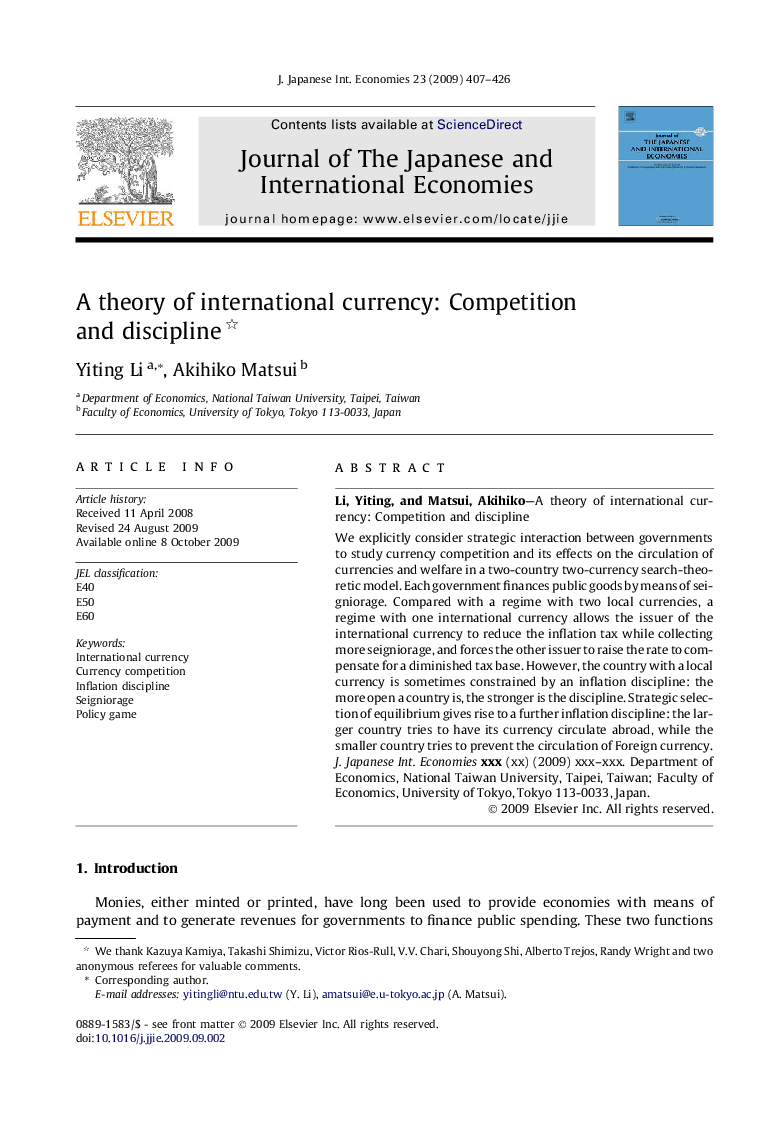| Article ID | Journal | Published Year | Pages | File Type |
|---|---|---|---|---|
| 965511 | Journal of the Japanese and International Economies | 2009 | 20 Pages |
Abstract
We explicitly consider strategic interaction between governments to study currency competition and its effects on the circulation of currencies and welfare in a two-country two-currency search-theoretic model. Each government finances public goods by means of seigniorage. Compared with a regime with two local currencies, a regime with one international currency allows the issuer of the international currency to reduce the inflation tax while collecting more seigniorage, and forces the other issuer to raise the rate to compensate for a diminished tax base. However, the country with a local currency is sometimes constrained by an inflation discipline: the more open a country is, the stronger is the discipline. Strategic selection of equilibrium gives rise to a further inflation discipline: the larger country tries to have its currency circulate abroad, while the smaller country tries to prevent the circulation of Foreign currency.
Related Topics
Social Sciences and Humanities
Economics, Econometrics and Finance
Economics and Econometrics
Authors
Yiting Li, Akihiko Matsui,
